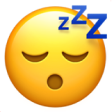Like fitness tracking, sleep trackers are on the rise. Popular devices range from wearables like smartwatches, rings and clothing attachments to devices you position or attach to your bed.
Sleep trackers provide personalized sleep insights, but with ranging capabilities, it can be hard to ascertain whether they track anything beneficial. So, let’s consider ways they may help you sleep better.
Recording your total sleep time is the first step in analyzing any sleep pattern. You can measure it without a sleep tracker; however, manually inputting your sleep and wake times fails to account for the time you lay there before falling asleep, waking from sleep and if you wake up briefly at night.
Sleep devices use an accelerometer to track movement and base your total sleep time on this.1 Research has found that total sleep time is a strength of most trackers as they have similar data when compared to polysomnography23 — the gold standard for sleep tracking.
Evaluating your quality of sleep is trickier than sleep time. Most trackers rely only on what they can sense, namely movement, which comes with obvious limitations.4 Nevertheless, this analysis is still interesting if you want to know how restless you are during sleep.
Measuring other elements will be the key to establishing more accurate sleep quality reports. For example, some studies are exploring how devices that record your heart rate can track your circadian rhythms and utilize that to assess overall sleep quality.5 As your circadian rhythm is your body’s internal clock,6 evaluating differences over time could highlight if something is disturbing your regular schedule.
Sleep trackers often try to track your sleep stages in order to assess sleep quality. Each sleep cycle consists of two main phases: rapid eye movement (REM) and non-rapid eye movement (NREM). Starting the sleep cycle, NREM comprises three stages ranging from light to deep sleep before moving on to REM sleep. Each phase or stage has unique characteristics, like eye movements and brain activity, but these are unfortunately not dependably tracked solely through body movements.7 There are newer devices that use skin and room temperature gauges as part of their sleep stage assessment,8 while others use a combination of movement and heart-rate patterns, both with some success. However, in the area of sleep stages, polysomnography remains superior.9
Overall, there is still plenty of room for error and opportunities for further development regarding sleep tracker device capabilities. But, as long as you understand the limitations, sleep trackers increase general sleep awareness by helping you learn about your sleep habits.
Sleep health is only one part of your health puzzle. When was the last time you assessed your heart health, immune function and diabetes risk or just had a general check-up? Try imaware’s easy, fast and affordable at-home tests.
References:
.svg)
Power your diagnostics with scalable lab solutions, advanced biomarkers, and seamless API integration under your brand.


